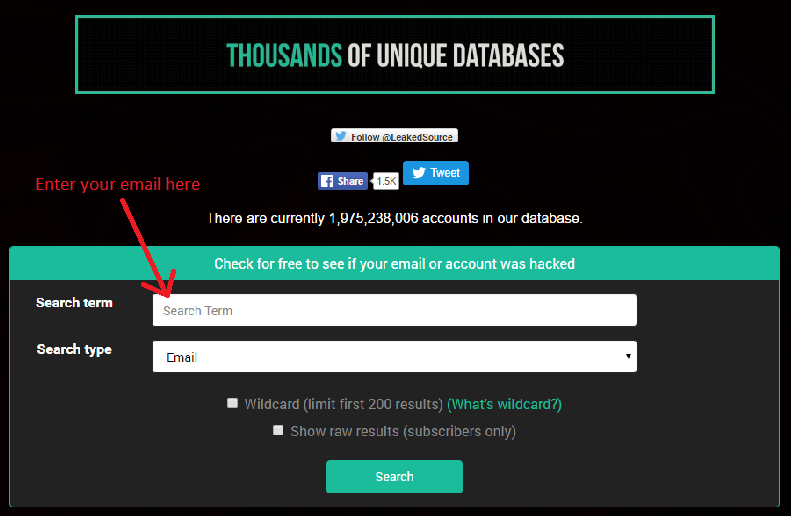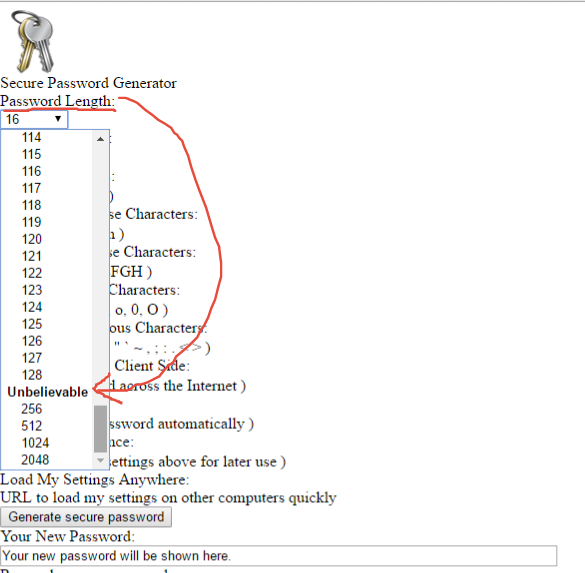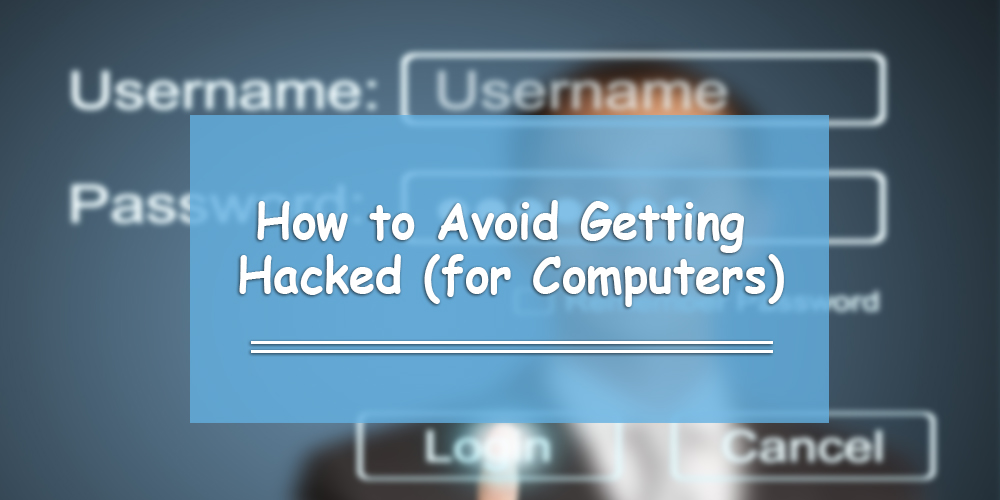Be honest: do you ever worry about one of your accounts getting hacked? Do you wonder what you would do if someone pretended to be you and stole your information? Do you ever think about how to avoid getting hacked?
Well, of course! This is one of the main concerns we all have on the Internet. “How can I make sure that I don’t get hacked and that my online accounts are well-protected?”
In this article, we’re going to give you some simple techniques you can use right now to prevent your accounts from getting hacked.
But First, a Disclaimer:
Let’s be real: getting hacked could happen to anyone. You might even know someone who thought they were safe, and their accounts suddenly got hacked without them knowing… only to find out that they could’ve just used a password like “123456” or “Password” (the two most popular passwords of 2015, according to Gizmodo). Some people could also avoid getting hacked by not clicking on sketchy email links, or have the same username and/or password across all social media platforms.
All of these are huge mistakes, but we’re not going to emphasize on these because these topics have already been covered by many organizations.
The tips we’re about to give you to avoid getting hacked are not just going to be based on common sense. We are going to take it a step further and make sure that anyone can benefit from these tips, so that everyone can become as unhackable as possible.
How Hackers Access Your Information
Aside from not using common sense (or should we say, ‘online sense’), hackers can get access to database leaks (otherwise known as internet leas). These occur when someone’s confidential information is inadvertently released to the public.
In short, this means that anyone can get access to this information.
Password database leaks happen all the time. It’s unfortunate, but it’s true.
The common problem for most hacking victims is that they have the same password for most (if not all) their sites.
So if the password database gets leaked for any website that you signed up with and your password there is the same as your current Twitter or YouTube password, then guess what? All those accounts with that password have essentially been leaked, as well.
In other words, if you sign up for a website that doesn’t have a secure database, and you use a password on that website that is the same for Facebook, Twitter, YouTube, Instagram, and your email… then any hacker could get access to your accounts, as well.

To take it a step further, if you have the same username or have used the same email address to sign up for that account, you are more exposed to a hacker. It might be harder for them to get access to the same account with the same username.
The important part is to make sure that no account shares the same password with another account.
Database Leaks Happen Quite Often
Some of the password leaks from the past include sites like:
• LinkedIn (the world’s largest professional social networking site); 100 million hacked accounts
• Sony PSN (the company who makes PlayStation); 77 million hacked accounts
• Dropbox (one of the biggest file-sharing companies in the world); 68 million hacked accounts
• Tumblr (one of the world’s most popular site for English-speaking bloggers); 65 million hacked accounts
• Myspace (a very popular social networking platform in the 2000’s); 427 million hacked accounts
• eBay (one of the biggest online shopping site in the world); 145 million hacked accounts
• VK (the largest European online social networking service); 171 hacked accounts
• J.P. Morgan Chase (one of the largest banking institutions in the United States); 76 million hacked personal accounts and 7 million small business accounts
How to Counter a Password Database Leak
The simple solution is this: have a different password for every site.
Again, the problem is that having a database leak with one website can affect your privacy in another. And that only happens when you use the same password with different sites.
But if you have a different password for every site, then one password database leak doesn’t affect your privacy elsewhere.
People Do Not Put Effort into Creating Their Passwords!
Not only are people not aware of these database leaks, but people don’t use their online sense.
One example of this having a password like “Password” or “123456,” which are extremely hackable. (Surprise!)
In fact, there is sophisticated software out there that actually help hackers retrieve passwords… even if a website locks you out after 5 incorrect guesses; this is a concept called “password cracking.” This software basically runs through the entire alphabet and dictionary and tries every combination of letters, numbers, and common words to guess your password.
How to Create a Password No One Will Figure Out
To avoid getting hacked, your password can’t be so easy to figure out. Ideally, it should contain no words, be as long as possible, include some random symbols, and essentially be as random as possible. In other words, your password needs to look like this:
/!*53Ym\]G12#$ (8J9k../%F4lUms*^;fY_s~//pMk6^7:-)9!:^)
There are several tools that can help you generate these passwords. One great tool you can use is PasswordsGenerator.net. It gives you the option to create passwords with all kinds of characters and you can make it as long as 2048 characters!

You can find other tools like this by Googling something like ‘random password generator,’ as well.
Of course, when we say a password that ‘no one’ can figure out, we still want you to remember it yourself. (We’ll get to that later.)
Remember that you’re not fighting against a human who’s trying to guess your password. You’re fighting a program that’s been specifically designed to find your password. It’s probably better to fight technology with technology in this case. Otherwise, you’ll give yourself a headache.
Also, remember that you need a password like this for every single website.
The Last Piece of the Puzzle: Remembering Your Passwords
Let’s be honest: you’re probably not going to remember these passwords if you use technology to generate characters that look like random pieces of code. You probably won’t even be able to remember one of them!
Not everyone has a photographic memory.

Here’s what you’re going to do:
1. Open a new word processing document; it could be Notepad, Microsoft Word, Leopard, etc.
2. Copy and paste the generated passwords from your online tool into the document.
3. Save the file.
That’s it. You can now get access to all your passwords in one document.
(An additional step: make sure you save the file in a folder where no one will know how to access the file. In other words, don’t save the file on your desktop. Use your online sense.)
Get a Password Manager, As Well
You may have read through this so far and thought, “This sounds great… but it’s such a tedious process. I don’t want to go through this every single time I need to log in.”
And you’re right. Who wants to go to a folder, open a file, and copy/paste a long password any time they want to log in?
Good news: there are more online tools to help you out with this! They’re called password managers. These are apps that help you store and organize your passwords so that you only need to log in once with that password. You can change your passwords, fill out forms, and save credit card information on there without having to worry about someone hacking your account.
All you need to do is download app on your computer, and create (and remember) one master password.

Conclusion
These steps might not make you hackproof forever. That’s impossible to do since the online world is always changing. To avoid getting hacked, it’s always important to stay up to date with news stories and be alert of new ways to avoid getting hacked.
Let us know whether you think these hacking prevention methods will work, and if you have anything else to add.
Stay safe!


